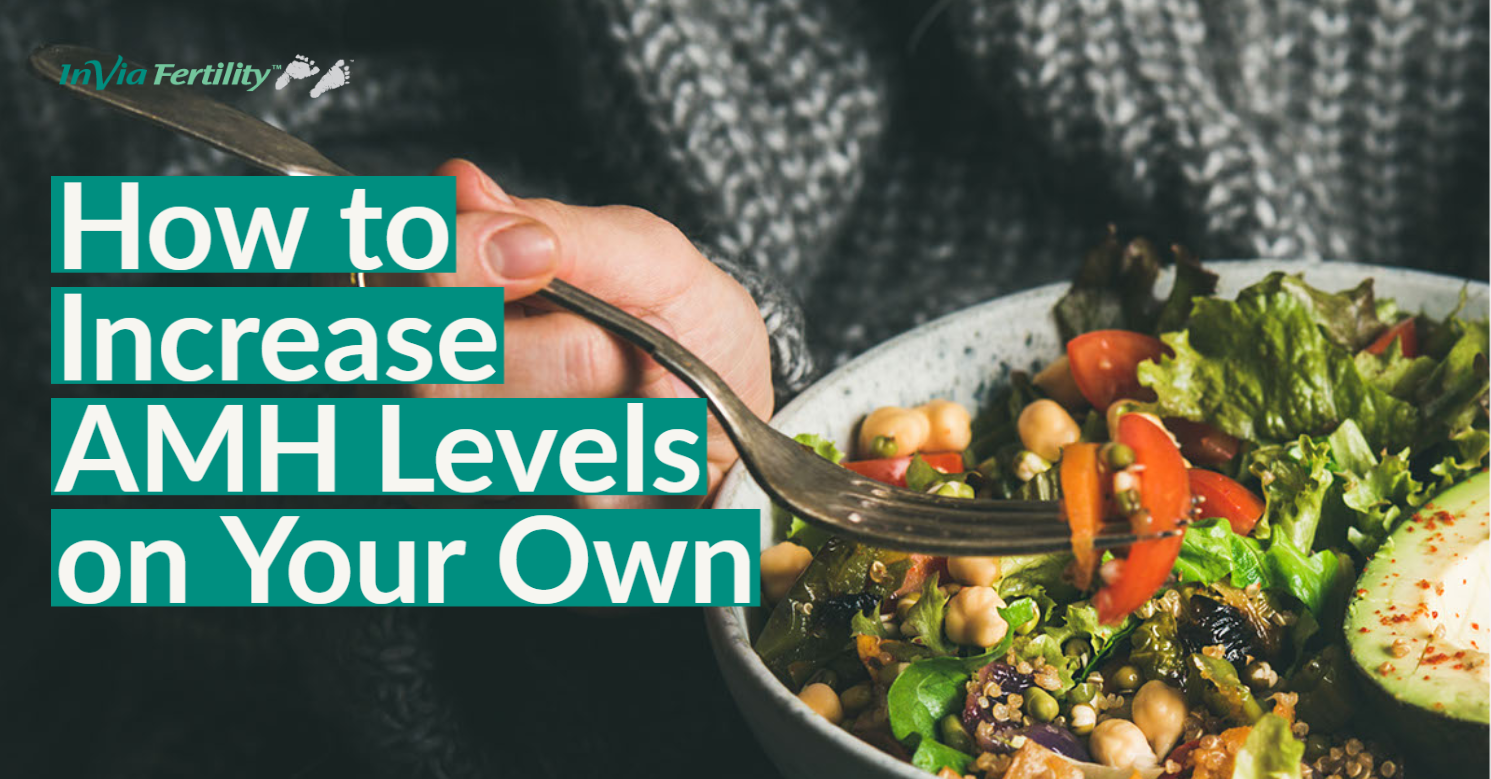
If you're having trouble getting pregnant, you've probably heard of anti-mullerian hormone or AMH. The level of the hormone's presence in the body is directly linked to the number of growing follicles able to produce eggs. Having a low AMH level is a hurdle many women face on the road to motherhood.
Since AMH has been shown to decrease with age, increasing the amount of this hormone is of particular interest to women over 40 who are experiencing AMH-related infertility.
There is no magic food to eat or vitamin to take that will miraculously raise AMH levels, and it's important to work with a qualified fertility specialist to address all fertility issues. But if you're researching how to increase AMH levels on your own, the following studies on how lifestyle and personal health affect AMH may be helpful:
A study from 2009 published in Human Reproduction showed the connection between weight loss in overweight or obese women with abnormal AMH levels and improved reproductive function. While the study didn’t show a marked change in AMH levels for the women who lost weight, it did show an improvement in reproductive function. While the connection between AMH and weight isn’t quite clear yet, what is clear is that losing weight (if overweight or obese) is one of your best options in fighting infertility on your own.
Studies have also found a direct correlation between vitamin D and AMH levels. This was found to be particularly the case with women over 40 who had low AMH levels. It is important to note that there is no data confirming that treating with vitamin D increases AMH levels. However, many in fertility specialists find that correlation reason enough to monitor patients vitamin D levels. A simple blood test will help determine if you are vitamin D deficient and you’ll likely be prescribed a supplement to treat this.
A nutrient-rich diet has also been suggested as a way to improve AMH levels, based on a 2013 study. The study found reproductive-age women suffering from Crohn’s Disease had much lower AMH levels than women who did not have the disease. This has led to speculation that the lowered ability to absorb vital nutrients in Crohn’s patients has a connection to AMH levels. Some researchers theorize that the more nutrients and vitamins the body absorbs, the better its reproductive function, including AMH production, will be. While this connection has yet to be proven, eating a healthy and nutrient rich diet is something that is recommended for all people.
Smoking cigarettes can also affect AMH levels. A 2010 study found smoking to be directly related to ovarian aging and and low AMH levels, adding to the reasons to quit smoking if you are now trying to get pregnant or expect to try any time in the future.
Experiencing low AMH levels is a common occurrence in women suffering from infertility, and it is possible to get pregnant in spite of this issue. While working with a qualified fertility specialist is important in overcoming fertility issues, making improvements in lifestyle and personal health habits can make a big difference if you're having trouble getting pregnant.
To see a fertility specialist who can help you take the rights steps to increase your AMH levels, make an appointment at one of InVia Fertility’s four Chicagoland locations.
Infertility Infertility treatment Diminished ovarian reserve

Entire Website © 2003 - 2020
Karande and Associates d/b/a InVia
Fertility Specialists
